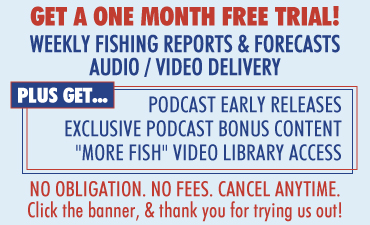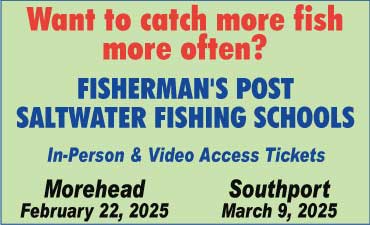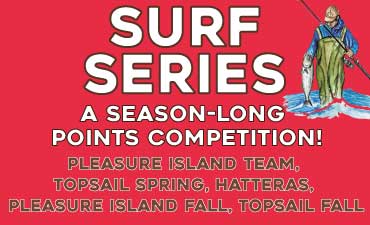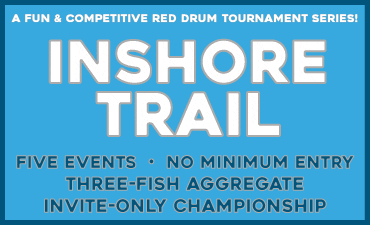Releases – May 24, 2018
Beginning next summer, new gear configurations will be required in shrimp trawls used in some waters of the state.
The N.C. Marine Fisheries Commission voted to require fishermen to use one of four gear combinations identified by a recent collaborative study that achieve at least 40 percent finfish bycatch. The new gear configurations will be required in all shrimp trawls, except skimmer trawls, used in inside waters where greater than 90-foot headrope length is allowed (Pamlico Sound and portions of Core Sound, Pamlico River, and Neuse River).
The director of the Division of Marine Fisheries will issue the requirement via proclamation to take effect July 1, 2019.
The study, a collaboration between the Division of Marine Fisheries, NOAA Fisheries, N.C. Sea Grant, and the commercial shrimp trawl industry, came about from a management strategy adopted by the commission in February 2015 as part of the Shrimp Fishery Management Plan.
The commission also voted to continue the shrimp industry workgroup and explore funding options for more studies; to survey fishermen to determine what bycatch reduction devices the shrimp trawl industry currently uses; and to begin development of Amendment 2 to the Shrimp Fishery Management Plan.
The commission instructed the division to acquire independent peer reviews of all reports on the three-year study, which the division is already in the process of doing, and re-evaluate the results following the peer reviews.
Kids can fish for free and register to win prizes, including two lifetime licenses, at one of more than 30 kids’ fishing events being conducted across the state in late May and early June.
The N.C. Wildlife Resources Commission, along with Neuse Sport Shop, Trout Unlimited, and the U.S. Forest Service, is supporting these fishing events as part of this year’s National Fishing and Boating Week.
The grand prize in the random drawing is a lifetime sportsman’s license. The license, donated by Neuse Sport Shop in Kinston, includes freshwater and saltwater fishing privileges, as well as hunting privileges. The first prize, donated by Trout Unlimited, is a lifetime freshwater fishing license. The Commission is donating an additional 100 prizes, such as fishing towels, playing cards, and mini-tackle boxes. Local sponsors for many events will provide prizes and gifts to registered participants as well.
The Wildlife Commission will conduct the drawing for prizes at the end of June and will publish a list of winners on ncwildlife.org in July. The agency also is stocking fish at many sites before the events to give participants a better chance of catching fish.
For more information about National Fishing and Boating Week 2018, visit the Recreational Boating and Fishing Foundation’s website, takemefishing.org.
NOAA Fisheries is pleased to release the annual report to congress on the Status of U.S. Fisheries, which summarizes the progress the nation has made in ending overfishing, rebuilding historically overfished stocks, and helping our fishing communities succeed. The report and supporting materials are available online on the NOAA Fisheries’ website, along with a message from Chris Oliver, Assistant Administrator for Fisheries.
Briefly, the 2017 Status of U.S. Fisheries reflects the collective and continuing progress in rebuilding stocks. It also finds that the number of stocks on the overfished list is at an all-time low, and stocks on the overfishing list remain near all-time lows.
In 2017, 91 percent of stocks were not subject to overfishing and 87 percent of stocks were not overfished. We are also pleased to report that last year, three additional stocks were rebuilt: bocaccio (Southern Pacific Coast), darkblotched rockfish (Pacific Coast), and Pacific ocean perch (Pacific Coast). This brings the total stocks rebuilt since 2000 to 44.
This report continues to highlight the success that can be achieved using sound science, innovative management approaches, effective enforcement, meaningful partnerships, and robust public participation. Under the Magnuson-Stevens Act, the United States has become an international leader in fisheries management. Our dynamic, science-based management process is proving successful in ending overfishing and rebuilding stocks, and in helping us attain significant benefits to the U.S. economy.
The N.C. Wildlife Resources Commission, State Highway Patrol, and Mothers Against Drunk Driving will kick off the eighth annual “On the Road, On the Water, Don’t Drink and Drive” campaign on Memorial Day weekend.
The multi-agency safety initiative works to reduce alcohol-related accidents on the state’s roadways and waterways, both of which see increased traffic during summer months.
“It’s easy to prevent alcohol-related accidents on the road and the water,” said Maj. Chris Huebner of the Wildlife Resources Commission. “If your holidays include drinking alcohol, make sure to designate a driver whether you’re in a car or on a vessel.”
Starting Memorial Day weekend, enforcement officers will be conducting sobriety checkpoints and promoting public awareness to deter impaired operation of vehicles and vessels. Awareness and enforcement efforts are centered on four of the busiest summer weekends, including: (1) May 26–28, 2018; (2) June 29–July 1, 2018 (Operation Dry Water); (3) July 6–8, 2018; and (4) Sept. 1–3, 2018.
In North Carolina, a driver or vessel operator with a blood-alcohol concentration that meets or exceeds .08, or is substantially impaired by alcohol and/or drugs, is subject to arrest.
The campaign is coordinated by the Wildlife Resources Commission and the State Highway Patrol, and supported by local police and sheriff’s offices, along with participating non-governmental organizations such as Mothers Against Drunk Driving.
For more information on boating safety and regulations, visit www.ncwildlife.org/boating or call (919) 707-0031.
NOAA Fisheries requests comments on a proposed rule for Amendment 43 to the Fishery Management Plan for the Snapper-Grouper Fishery of the South Atlantic Region (Amendment 43). The proposed actions would specify recreational and commercial annual catch limits for red snapper beginning in 2018.
Red snapper recreational and commercial seasons would open in South Atlantic federal waters for limited harvest beginning in 2018. The South Atlantic Fishery Management Council approved Amendment 43 after recent scientific information indicated an increase in the red snapper population since 2014. NOAA Fisheries determined the proposed limited harvest beginning in 2018 is neither expected to result in overfishing, nor prevent continued rebuilding of the population.
The comment period on the proposed rule begins on May 17, 2018, and comments are due by June 18, 2018.
A summary of the proposed changes for red snapper are as follows: (1) The total annual catch limit would be 42,510 fish; (2) The recreational annual catch limit would be 29,656 fish; (3) The recreational bag limit would be one red snapper per person per day. This applies to private and charterboat/headboat vessels (the captain and crew on for-hire vessels may retain the recreational bag limit); (4) The commercial annual catch limit would be 124,815 pounds whole weight (12,854 fish); (5) The commercial trip limit would be 75 pounds gutted weight; (6) There would be no minimum size limit for the recreational or commercial sectors; (7) The opening and closing of the recreational sector would be specified before the recreational season begins and would be weekends only (Friday, Saturday, Sunday); and (8) The commercial sector would close when the commercial annual catch limit is projected to be met.
Amendment 43 specifies that the commercial sector would open the 2nd Monday in July and the recreational sector would open the 2nd Friday in July. If the fishing seasons do not open exactly on these dates, they would open as close to these dates as possible.
NOAA Fisheries will announce the opening dates, if the amendment is approved, in a future Fishery Bulletin.
The comment period on the proposed rule begins on May 17, 2018, and comments are due by June 18, 2018. You may submit comments by electronic submission or by postal mail. Comments sent by any other method (such as e-mail), to any other address or individual, or received after the end of the comment period, may not be considered by NOAA Fisheries. Comments are still being accepted on the notice of availability for Amendment 43 until June 15, 2018.
Submit all electronic public comments via the Federal e-Rulemaking Portal. Submit written comments to Frank Helies, Southeast Regional Office, NMFS, 263 13th Avenue South, St. Petersburg, FL 33701.





